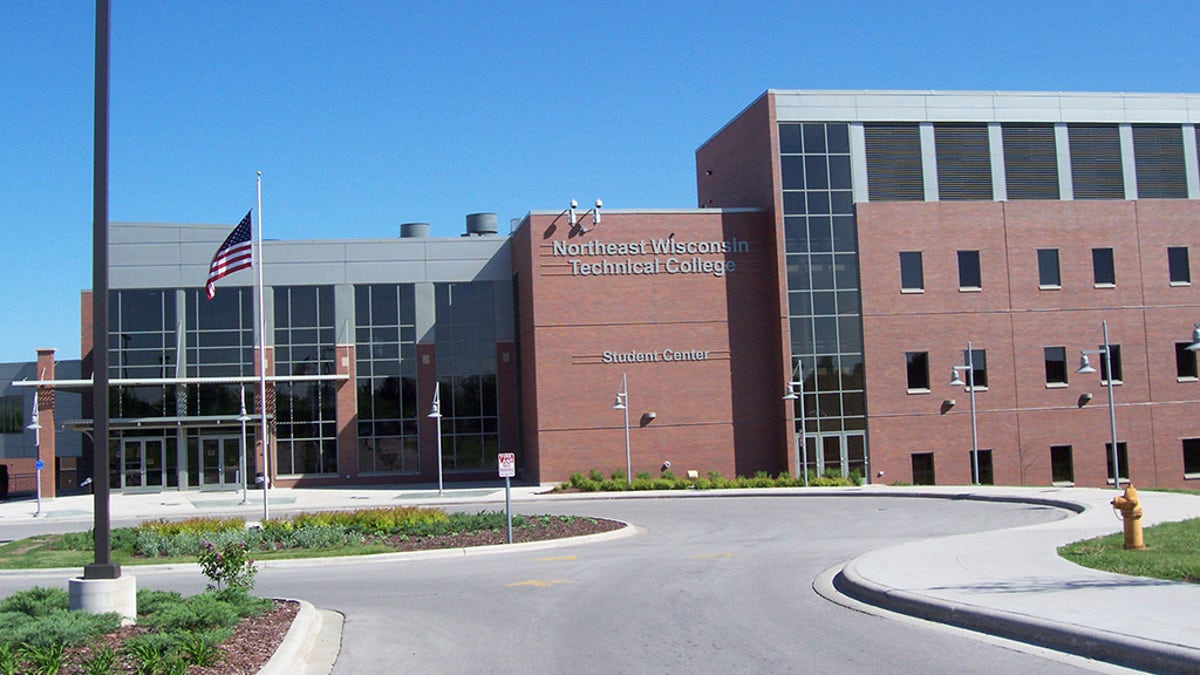
(Northeast Wisconsin Technical College)
Earlier this year, my colleagues and I won a case for John McAdams, a tenured political science professor at Marquette University, who the university attempted to fire for writing an accurate and civil blogpost – even though academic freedom was guaranteed in his contract.
And now we’re back in court defending freedom at another college. This time the offender is a public institution, the Northeast Wisconsin Technical College (NWTC) in Green Bay, which refuses to let its students exercise their constitutional free-speech rights. Its transgression, while serious, is not unique in academia.
Here’s what happened:
On Feb. 14 – Valentine’s Day – student Polly Olsen handed out about a dozen valentines on campus, bearing religious messages, such as “Jesus loves you.” Within a few minutes, an alarm was sounded.
Hearing of what was later called “suspicious activity,” campus security officers descended upon Olsen and escorted her to their office. They demanded Olsen immediately cease handing out valentines because she was in direct violation of the school’s “Public Assembly Policy.” She was, according to one officer, “soliciting” outside of the school’s designated “free-speech zone” without a permit.
NWTC, like too many other schools, restricts free speech to a tiny, inconvenient corner of campus. It states that protests, demonstrations, and distribution of literature – that is, speech – can only take place in a designated “public assembly area,” which by our estimation is less than a half-acre.
The rest of the school – including student lounges and gathering areas, walkways and patios – are speech-free zones. In fact, even speech in the free-speech “zone” isn’t free. Students need to get advance permission to speak and campus officials can reject a request for any reason or no reason.
In other words, NWTC puts free speech in a box. This is unconstitutional. When informed of NWTC’s policy, UCLA law professor Eugene Volokh, who specializes in the First Amendment, observed that “courts have made clear that colleges can’t limit peaceful distribution of literature by students to some tiny ‘free speech zone.’”
To be sure, schools can adopt reasonable rules to ensure that speech does not disrupt learning.
But Olsen did not invade the classroom or disturb anyone’s study. What colleges may not do is act to insulate students from unwanted ideas.
Apart from constitutional limitations, which courts will enforce, silencing speakers does not further the education of students. Sometimes when students are exposed to an idea or concept they might not otherwise hear – whether in the classroom or in common areas where students congregate – they will embrace the idea and make it their own.
Perhaps the students will still disagree – and that’s fine. Either way, it is important that students be exposed to ideas they disagree with, because at the very least it strengthens their arguments for what they believe and why they believe it.
Learning how to handle unwanted and objectionable ideas is part of becoming an adult. As Greg Lukianoff and Jonathan Haidt point out in their new book, “The Coddling of the American Mind,” academia’s obsession with the avoidance of offense and discomfort – often bizarrely couched in terms of “safety” – creates adults incapable of coping with life outside the cocoon.
We told NWTC that its policy was unconstitutional and had to be changed. Unfortunately, it lawyered up and hunkered down. So to protect the rights of Olsen and her fellow students, my colleagues and I at the Wisconsin Institute for Law & Liberty have sued NWTC.
Free speech is nothing to fear. Perhaps – someday –even college bureaucrats will learn that.








































